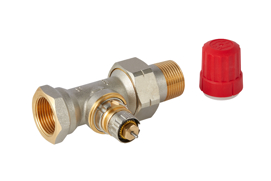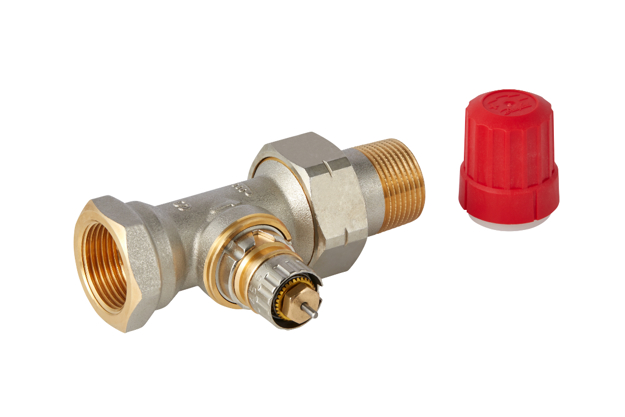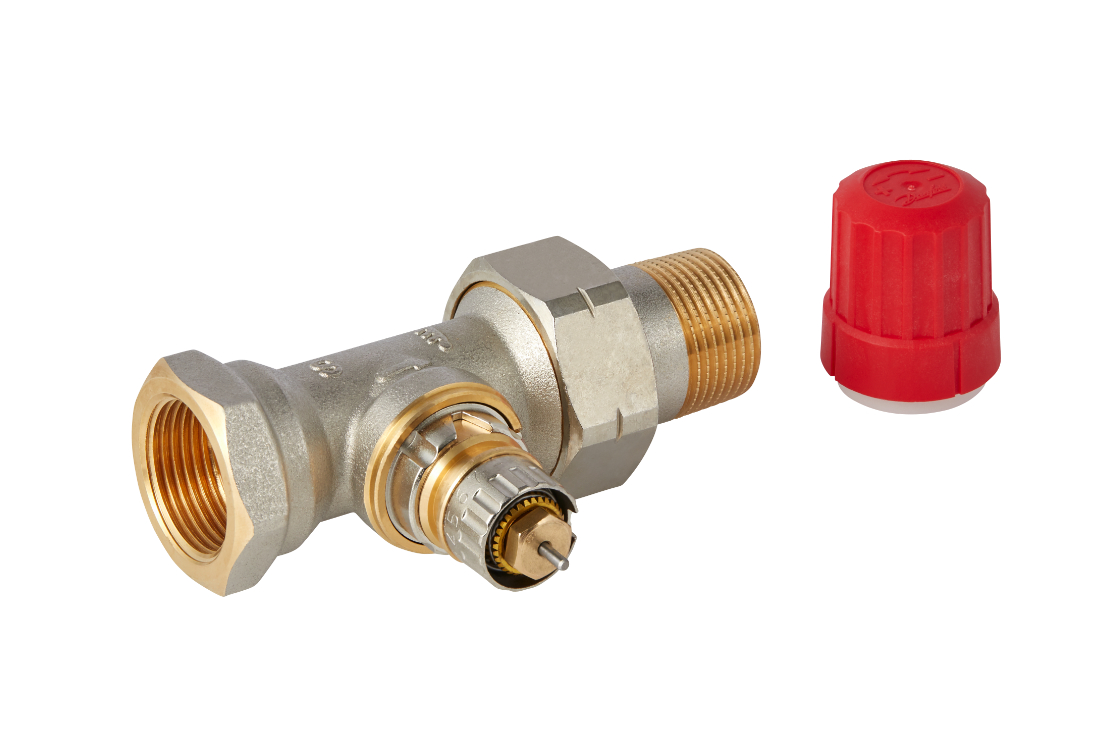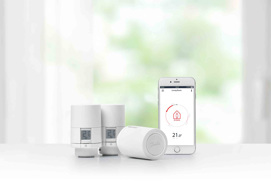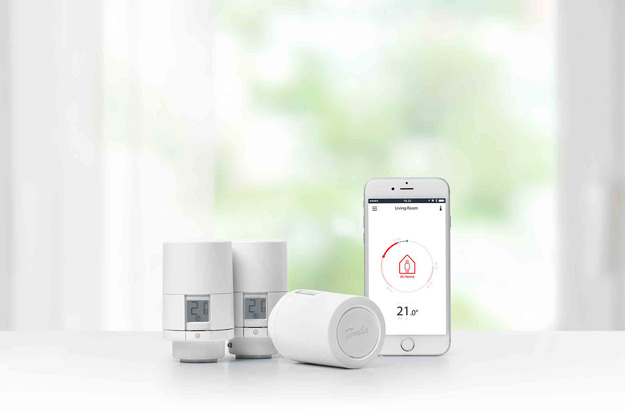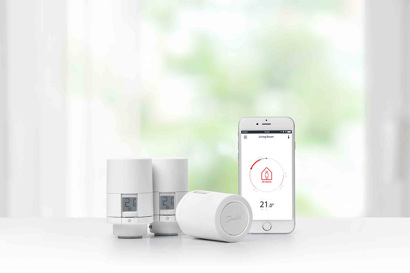Danfoss radiator thermostats optimize the heating of your home and save energy without compromising on comfort.
You can easily set and maintain your preferred temperature, even down to each individual room. Maybe you like your living room nice and warm but want to keep a rarely used spare room at minimum temperature? Plus, heating your home more efficiently allows you to not only get a better comfort. In fact, you can reduce your heat consumption significantly simply by upgrading your old thermostats.
Danfoss invented the radiator thermostat more than 80 years ago and today, more than 40 million homes are heated with this technology.
Features and benefits
Danfoss radiator thermostats maintain your desired room temperatures for optimal comfort in your home, room by room.
Fast response time compared to a manual valve helps reduce your energy consumption.
Unique click-connection for fast and easy installation - for DIY and professionals.
Our product range covers both liquid thermostats as well as fast-responding gas and electronic thermostats for improved energy efficiency.
Mechanical, smart or design thermostat?
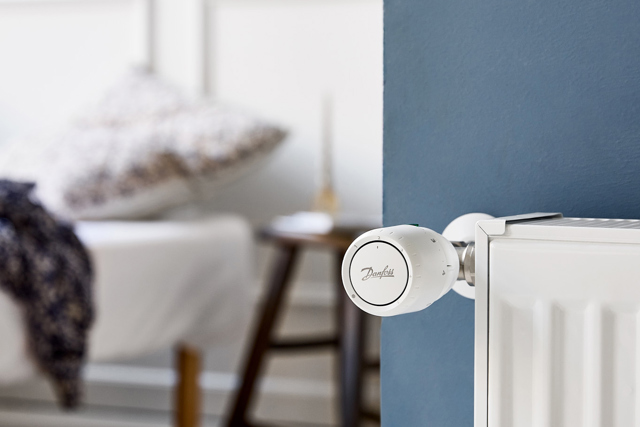
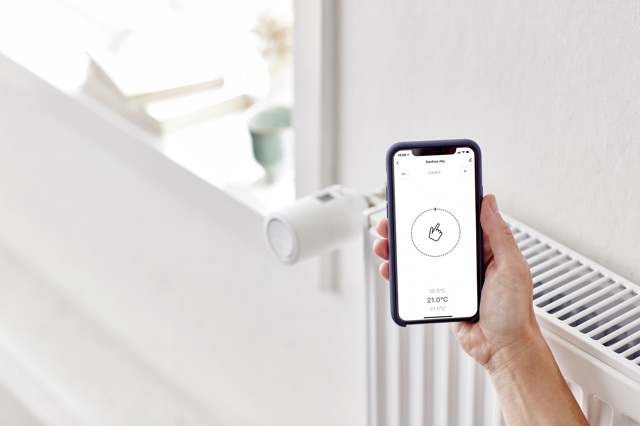
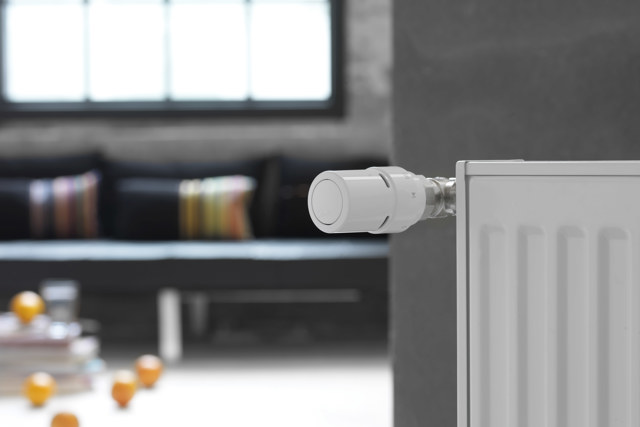
Find the right product
Go into details:

Check your savings potential
Upgrading your old radiator thermostats is a quick and easy way to reduce your energy consumption—and lower your heating bill. Want to know how much you can save? Check out our infographic to find out.
Documents
| Type | Name | Language | Valid for | Updated | Download | File type |
|---|---|---|---|---|---|---|
| Data sheet | Adapters for thermostatic sensors | Latvian | Multiple | 31 Jan, 2024 | 418.4 KB | |
| Data sheet | Adapters for thermostatic sensors | English | Multiple | 31 Jan, 2024 | 394.6 KB | |
| Data sheet | Adapters for thermostatic sensors | Lithuanian | Multiple | 31 Jan, 2024 | 416.6 KB | |
| Data sheet | Adapters for thermostatic sensors | German | Multiple | 22 Jan, 2024 | 420.5 KB | |
| Data sheet | Éléments thermostatiques RAE | French | Multiple | 09 Jan, 2013 | 8.0 MB | |
| Data sheet | FJVR | Ukrainian | Ukraine | 24 Dec, 2021 | 204.2 KB | |
| Data sheet | RAE thermostatic sensors | Czech | Multiple | 08 Sep, 2014 | 1.3 MB | |
| Data sheet | RAE thermostatic sensors | Spanish, Castilian | Multiple | 08 Sep, 2014 | 1.2 MB | |
| Data sheet | RAE thermostatic sensors | Latvian | Latvia | 04 Oct, 2021 | 857.1 KB | |
| Data sheet | RAE thermostatic sensors | Hungarian | Multiple | 08 Sep, 2014 | 1.2 MB | |
| Data sheet | RAE thermostatic sensors | Italian | Multiple | 27 Apr, 2011 | 566.0 KB | |
| Data sheet | RAE thermostatic sensors | German | Multiple | 13 Aug, 2020 | 1.4 MB | |
| Data sheet | RAE thermostatic sensors | Dutch, Flemish | Multiple | 08 Sep, 2014 | 1.1 MB | |
| Data sheet | RAE thermostatic sensors | English | Multiple | 08 Aug, 2014 | 1.3 MB | |
| Data sheet | RAE thermostatic sensors | Romanian, Moldavian, Moldovan | Multiple | 08 Sep, 2014 | 1.3 MB | |
| Brochure | RAS-D2 Sales Leaflet | English | United Kingdom | 11 Sep, 2014 | 580.8 KB | |
| Data sheet | Return temperature limiter type FJVR | Danish | Multiple | 04 Jun, 2013 | 991.4 KB | |
| Data sheet | Return temperature limiter type FJVR | Lithuanian | Multiple | 07 Jun, 2013 | 1.0 MB | |
| Data sheet | Return temperature limiter type FJVR | Latvian | Multiple | 07 Jun, 2013 | 1.0 MB | |
| Data sheet | Return temperature limiter type FJVR | Serbian (RS) | Multiple | 05 Nov, 2009 | 589.5 KB | |
| Data sheet | Return temperature limiter type FJVR | Swedish | Multiple | 07 Jun, 2013 | 995.8 KB | |
| Data sheet | Return temperature limiter type FJVR | Polish | Multiple | 04 Jan, 2016 | 1.0 MB | |
| Data sheet | Return temperature limiter type FJVR | English | Multiple | 04 Jun, 2013 | 678.2 KB | |
| Data sheet | Return temperature limiter type FJVR | Slovak | Multiple | 20 Jan, 2016 | 1.0 MB | |
| Data sheet | Return temperature limiter type FJVR | German | Multiple | 01 Sep, 2020 | 1.4 MB | |
| Data sheet | Return temperature limiter type FJVR | Czech | Multiple | 07 Jun, 2013 | 1.1 MB | |
| Data sheet | Return temperature limiter type FJVR | Romanian, Moldavian, Moldovan | Multiple | 20 Jan, 2016 | 1.0 MB | |
| Data sheet | Thermostatic Sensors RAS-C & RAS-CK | Latvian | Multiple | 01 Sep, 2010 | 708.3 KB | |
| Data sheet | Thermostatic Sensors RAS-C & RAS-CK | Romanian, Moldavian, Moldovan | Multiple | 16 Jul, 2015 | 501.2 KB | |
| Data sheet | Thermostatic Sensors RAS-C & RAS-CK | English | Multiple | 05 May, 2011 | 8.8 MB | |
| Data sheet | Thermostatic Sensors RAS-C & RAS-CK | Estonian | Multiple | 08 Nov, 2016 | 218.3 KB | |
| Data sheet | Thermostatic Sensors RAS-C & RAS-CK | Lithuanian | Multiple | 20 May, 2016 | 306.2 KB |
Related products
-
if (isSmallPicture) {


 Radiator valves
Radiator valvesRobustly built and designed to meet the rigors of the commercial and industrial sectors, a comprehensive range of Danfoss radiator valves is available for practically all systems and installation conditions.
-
if (isSmallPicture) {


 Electronic radiator thermostats
Electronic radiator thermostatsElectronic radiator thermostat Danfoss Eco™ is the stand-alone smart radiator thermostat that gives you in-home control of your radiator heating.

